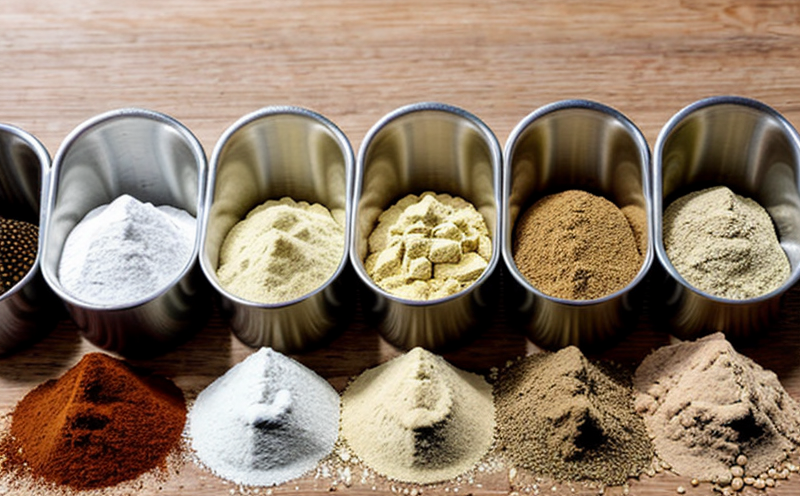EN 37382 Vitamin-Mineral Premix Profiling in Swine Feed
The European standard EN 37382 provides a robust framework for the evaluation of vitamin-mineral premixes used in swine feed. This service ensures that feed additives are formulated to meet precise nutritional requirements, enhancing animal health and growth performance while minimizing risks associated with suboptimal nutrition or contamination.
The standard is particularly important as it addresses the need for accurate profiling of vitamins and minerals in pre-mixed formulations. By ensuring compliance with EN 37382, feed manufacturers can demonstrate that their products are safe, effective, and in line with current best practices in animal nutrition. This service supports a wide range of stakeholders including quality managers, compliance officers, R&D engineers, and procurement teams.
The testing process involves a comprehensive approach to ensuring the accuracy and reliability of vitamin-mineral profiles. Specimens are carefully prepared according to standard procedures, which may include dissolution steps followed by analysis using advanced analytical techniques such as HPLC (High-Performance Liquid Chromatography), ICP-MS (Inductively Coupled Plasma Mass Spectrometry), and atomic absorption spectroscopy.
The results of these analyses provide detailed insights into the concentrations and forms of vitamins and minerals present in the premix. These data are crucial for ensuring that swine receive appropriate nutrition levels, which can significantly impact their health and productivity. The service also includes a thorough evaluation of potential contaminants or impurities that might affect feed quality.
One of the key aspects of this testing is the validation of analytical methods used to determine trace elements and vitamins. This ensures that the data obtained are precise and reliable, which is essential for regulatory compliance and internal quality control measures. The service provider adheres strictly to international standards such as EN 37382, ISO/IEC 17025, and other relevant guidelines.
The scope of this testing includes not only the primary vitamins and minerals but also their interactions within the feed matrix. This holistic approach ensures that all factors contributing to optimal nutrition are considered. The results of these tests can be used for various purposes such as formulation optimization, regulatory submission preparation, or internal process improvement initiatives.
By partnering with our laboratory, clients benefit from access to cutting-edge technology and experienced professionals who understand the nuances of swine feed formulation and quality assurance.
Scope and Methodology
| Aspect | Description |
|---|---|
| Vitamin Analysis | Involves quantification of various vitamins present in the premix. |
| Mineral Analysis | Detailed assessment of trace elements and macro-elements. |
| Contaminant Screening | Identification of potential contaminants that could compromise feed safety. |
| Methodology | Description |
|---|---|
| Sample Preparation | Involves dissolution and purification steps to ensure accurate analysis. |
| Analytical Techniques | Use of HPLC, ICP-MS, and atomic absorption for precise measurement. |
| Data Interpretation | Analysis of results against established benchmarks and industry standards. |
Quality and Reliability Assurance
- Adherence to ISO/IEC 17025 accreditation for testing laboratories.
- Use of state-of-the-art instrumentation and equipment.
- Regular calibration and validation of analytical methods.
- Detailed documentation of all test procedures and results.
International Acceptance and Recognition
The EN 37382 standard is widely recognized across Europe, ensuring that the testing results are accepted by regulatory bodies and industry stakeholders. This service not only meets European standards but also aligns with global best practices in animal feed nutrition.
The rigorous nature of this testing ensures compliance with various national and international regulations related to food safety and quality. The results can be used for submission to EU authorities, as well as for internal audits and process improvements within companies operating in the swine feed sector.





